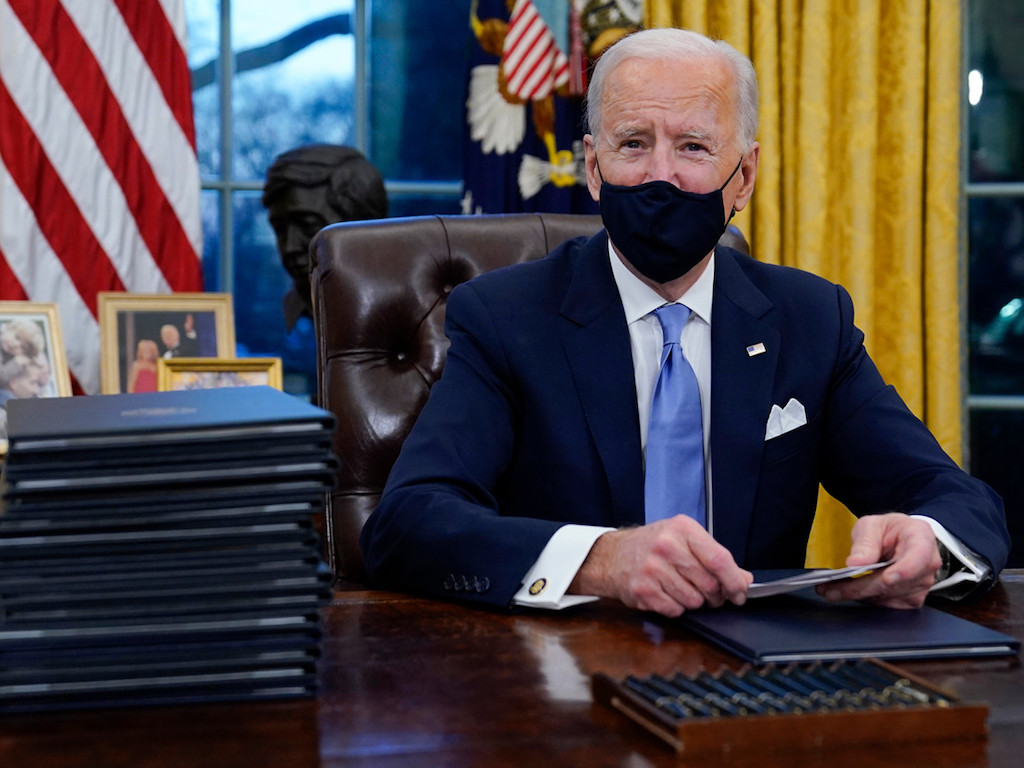3 Mins Read
President Joe Biden, in one of his first moves in office, has signed an executive order to have the U.S. rejoin the Paris agreement, a commitment that put the world’s most powerful economy back on track to combat the climate crisis.
On his Inauguration Day (January 20), U.S. President Joe Biden signed an executive order to make the country rejoin the Paris accord to limit global heating and the disastrous consequences it will bring. Biden first announced his intention to do so in his action plan released shortly after he won the election, which also included a commitment to host a climate summit within the first 100 days of office.
Biden’s move has already been praised by U.N. secretary general Antonio Guterres, who commented in an email statement sent to Green Queen and other media outlets that he “warmly welcome[s] President Biden’s steps to re-enter the Paris Agreement on Climate Change and join the growing coalition of governments, cities, states, businesses and people taking ambitious action to confront the climate crisis.”
The U.S. became the only country to ever withdraw from the agreement when former president Donald Trump started the process in 2017, steering the world’s largest economy completely off-track in taking responsibility to help combat the climate emergency. After China, the country is the second biggest emitter of greenhouse gases, and has contributed more historical emissions than any other country in the world.
[I] warmly welcome President Biden’s steps to re-enter the Paris Agreement on Climate Change and join the growing coalition of governments, cities, states, businesses and people taking ambitious action to confront the climate crisis.
Antonio Guterres, U.N. Secretary-General
It will now take 30 days for the U.S. to officially be a part of the Paris accord again, putting the country back on a trajectory to reach net-zero emissions by 2050. Biden says that achieving carbon neutrality is not only necessary to combat climate change but a move that would ultimately benefit the country’s economy and workforce.
One of the biggest challenges facing the administration in its climate efforts will be to curb industrial and transportation sources of emissions. According to government statistics, transportation stands as the largest contributor to domestic carbon emissions, making the electrification of the automotive industry crucial to the plan.
The science is also clear on the need to slash emissions from the food system, the majority of which is driven by carbon-intensive and polluting animal agriculture. Even if fossil fuels were to be eradicated completely, experts say that the Paris agreement goals will still be out of reach without a dramatic global shift away from meat and dairy, which still feature heavily in the standard American diet.
We look forward to the leadership of the United States in accelerating global efforts towards net zero
Antonio Guterres, U.N. Secretary-General
Some scientists say that the Paris accord target is already impossible, with one paper outlining how current emissions in the atmosphere have committed the planet to temperature rise in excess of 2 degrees Celsius. But they are clear that reaching net-zero as quickly as possible offers great hope for stabilising global heating and the environmental disasters that are on the horizon.
With the participation of the U.S. in the global climate effort, there now appears to be hope that governments must show leadership to address the enormous planetary threat we face today, especially as world leaders prepare to meet in Glasgow later this year to make renew their climate pledges.
“We look forward to the leadership of the United States in accelerating global efforts towards net zero, including by bringing forward a new nationally determined contribution with ambitious 2030 targets and climate finance,” wrote Guterres.
Lead image courtesy of AP Photo / Evan Vucci.




